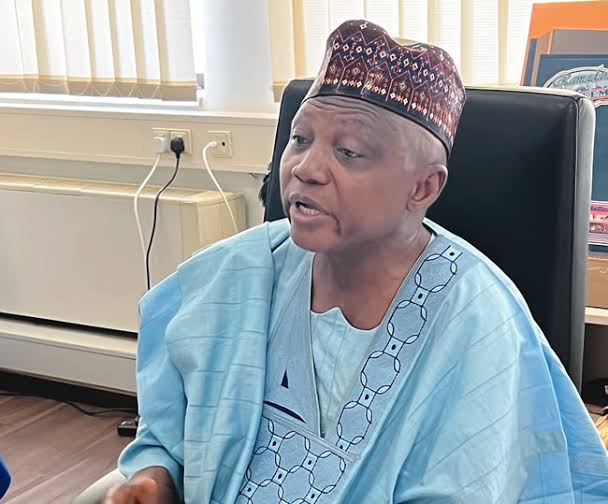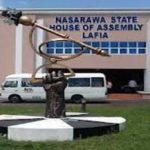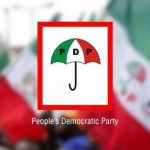Dear Readers
One of the many news items worthy of attention of socio-political observers and citizens of Nigeria last week was the statement released by the former spokesperson to President Muhammadu Buhari, Mallam Garba Shehu, about the removal of subsidy. Since we now have a new president and he has his own new spokesperson thereby making Mallam Garba Shehu no more a spokesperson to the president but just a normal private citizen, it is yes possible, but wrong, to miss his statement. It is wrong to miss statements from the men and women of yesterday because they have deep knowledge of and direct responsibilities for our today…
Anyway, in case you missed it, the crux of the statement released by Garba Shehu was to let us know that his boss, the former President, Muhammadu Buhari, did not remove the fuel subsidy not because he was inept or incapable but for political reasons and that his boss and his administration conceived and led the removal of many other subsidies. Interestingly, the statement was titled “Buhari didn’t fail to remove subsidy”. Please hold on to the title as we shall come back to it. Reading through the long list of subsidies listed by Garba Shehu as removed by his administration, one would be excused for thinking this country is a nation of subsidies or that the past government, led by the tall lanky General, campaigned for and was elected to remove subsidies.
Some private and public commentators have had course to consider the statement issued by Garba Shehu as a moment of honesty by a public figure. The man himself used the expression “honest” in his statement. In his own words: “we must be politically honest with ourselves. The Buhari administration in its last days could not have gone the whole way because the APC had an election to win. And that would have been the case with any political party that was seeking election for another term with a new principal at its head. Poll after polls showed that the party would have been thrown out of office if the decision as envisaged by the new Petroleum Industry Act was made.”
Confession is not honesty. Confession is generally an admission of guilt, it, in most cases, appears after an act that should not have been committed but that has been committed or when a deed that should have been done has not been done. In that sense, confession has to be honest and complete. Anything short of a complete admission or laced with justification is no more a confession but a defence, in most cases, defences are rarely truly honest. By definition and etymology, honesty is linked to honour, fairness, decorum and discipline, free of the quest to win popularity contest, devoid of conspirative deeds, hypocrisy or double speaking, it is a quality, a virtue associated with boldness, confidence in truth, secularly, an index of commitment to principles and religiously a sign of submission to faith and commandment of the divine. Honesty appears before and during an event not after, honesty is tested and displayed when lying for comfort or interest or out of fear might rationally be deemed to be the convenient option.
Like all virtues, honesty is a personal trait or deed and by practice a source of collective inspiration chronicled to lift more people, a standard set for others to achieve and reference point for society or institution budling. Whilst the intention to explain and justify the omissions and misdeeds of his administration is clear, it is also clear to me that the statement issued by Garba Shehu does nothing to inspire we the people nor fortify our institutions. Like an annoying artisan or a mischievous trader that announces one item then trying to get you to use another, Garba Shehu titled his statement “Buhari didn’t fail to remove subsidy” then went on to explain why the man failed to do something he had eight years to do. We really need to pray against this vexatious national sickness that makes people think the “why” trumps the “what” or that explanations can excuse or even make disappear disappointments and pain they cause.
As if affected by some sort of amnesia or allergy to confession, the former presidential spokesperson totally ignored the known and documented fact that his boss had at many times stated that fuel subsidy does not exist. Like an atheist that does not believe in heaven and hell, from where do you find the moral authority to remove what you have said does not exist? The idea that we are told to accept as honest, albeit “political honest”, that a man many of us hailed, defended, promoted and campaigned for as Mai Gaskiya (the truthful or honest one) will agree to and even lead a plan to hold down what he thinks is just and needed so that his party can win an election is not just personally sickening, it is deteriorative to our collective bond and institution building.
With the kind of deteriorative honesty proposed by Garba Shehu, how does one explain to and inspire young people to believe that once a president or governor is sworn into office he or she must and will act only and always in the interest of the whole country never in the interest of a part of it, be that part political party, ethnic group or religious unit?
It gets worse when one remembers that the same people had no qualms in forging on with the botched attempted to change the naira. Can we forget the outburst of the candidate turn president in Abeokuta or the rebellion of leading members of the same party that Garba Shehu today claims they were trying to help to win? “Second base jare” in the voice of Fela Kuti.
Citizens are not daft; they might be poor or ignorant but rarely daft as governance touches a part of their body often sharper than the brain: the pocket. When citizens do silly or criminal things, like selling their votes or hailing their oppressors, it is because their pockets are telling them not to trust institutions or have hope in justice. In government, there will always be difficult decisions to take.
The honest leader and government must develop the clarity of vision to identify what sacrifices are needed to be made for the sake of prosperity and stability, the projected benefits of the requested sacrifice or even pain, predict possible duration in the wilderness then find the courage of voice to explain the harvest that will come and the consequences of not taking tough decisions.
Join me if you can on twitter @anthonykila to continue these conversations.
Anthony Kila is Institute Director at CIAPS. www.ciaps.org.






